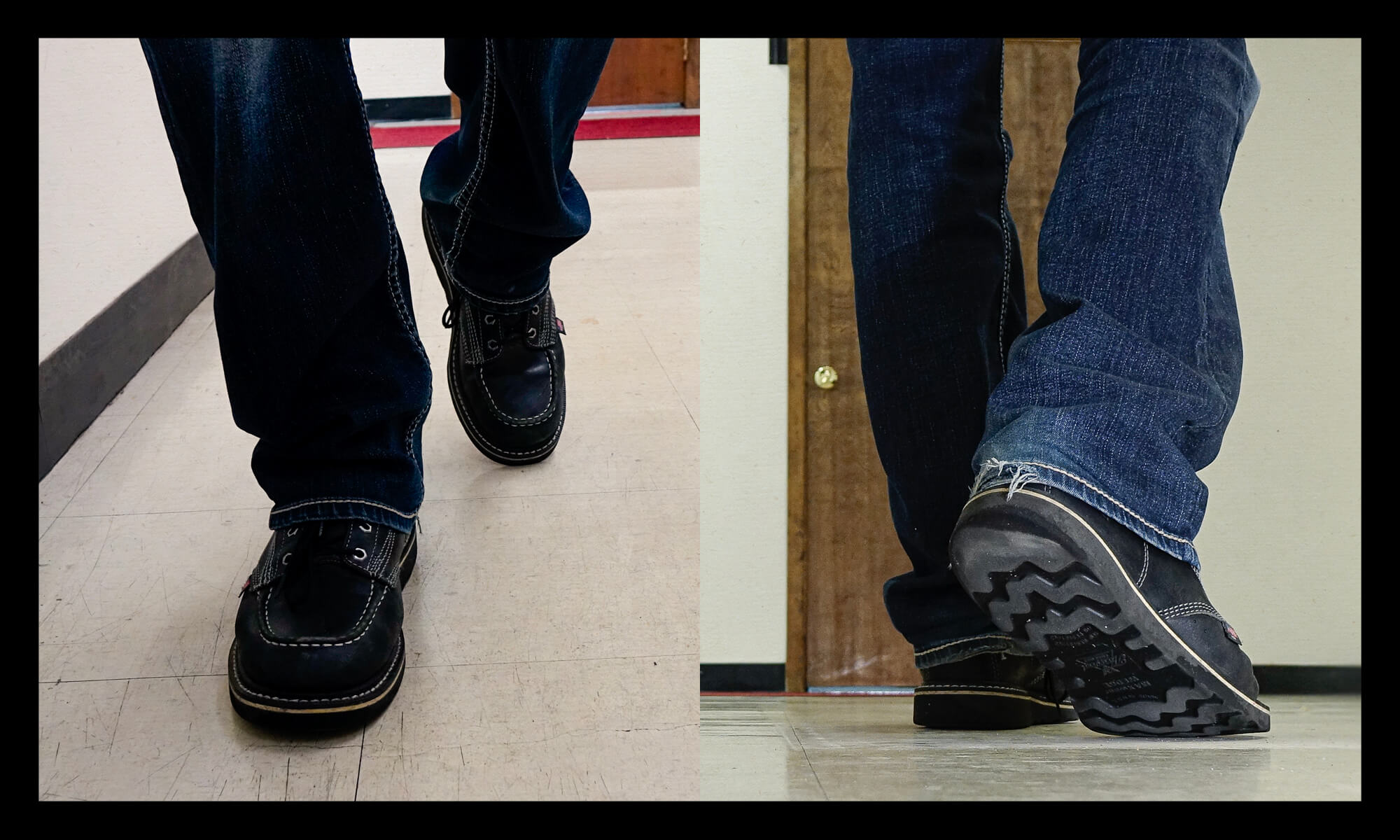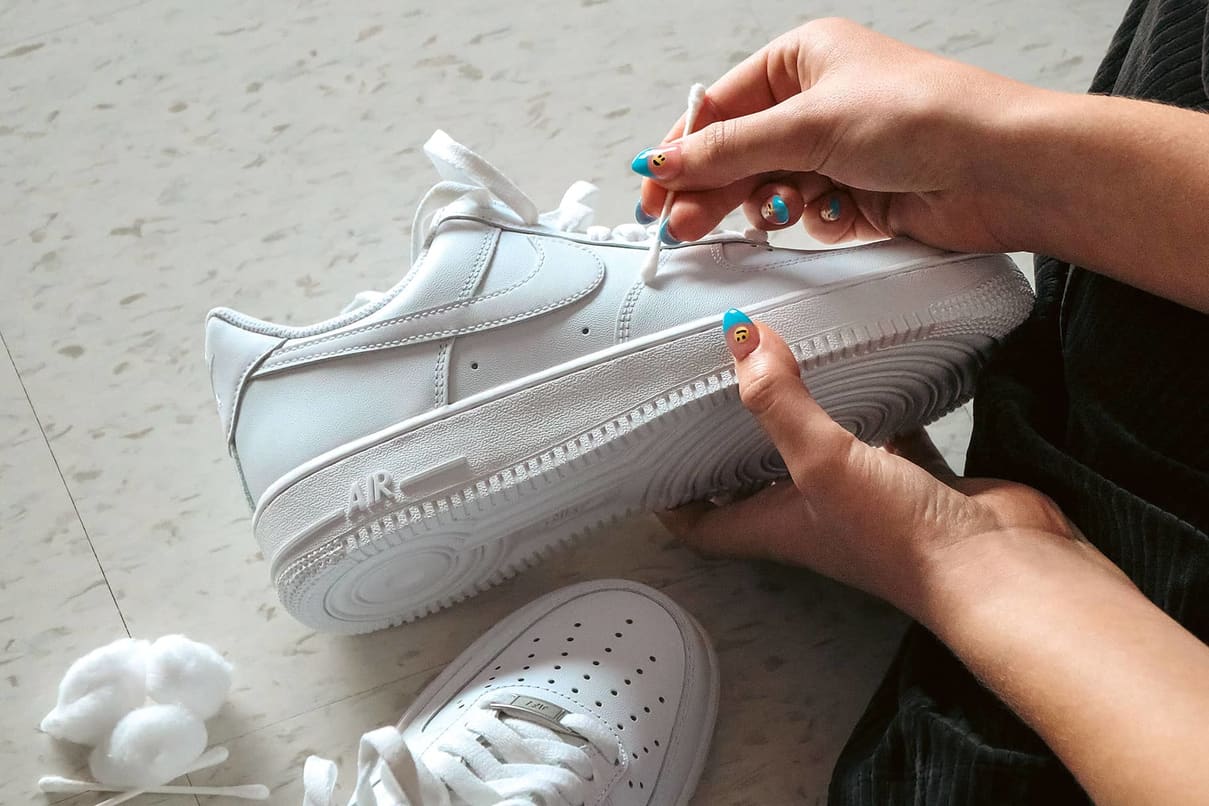We’ve all been there—you’re strutting your stuff, feeling confident, and suddenly, your shoes make an embarrassing squeak with every step. It’s not just irritating; it can also be a major distraction in professional and social settings. But why do shoes squeak, and more importantly, how can you fix it?
Understanding the Basics of Squeaky Shoes
Squeaky shoes can be attributed to a variety of factors, from the materials used in the construction to wear and tear over time. Let’s break down the primary reasons why shoes may emit that annoying sound.
Material Matters
The materials used in footwear play a significant role in noise production. Shoes made from synthetic materials often squeak more than those made from natural materials. Leather, for example, is generally quieter but can still produce noise if not maintained properly. Synthetic soles can adhere to wet surfaces, causing friction that results in squeaking sounds. If you’re wearing shoes with rubber soles, the sound could stem from the sole’s contact with different surfaces.

The Influence of Construction Techniques
Aesthetics aren’t the only consideration in shoe construction; the techniques used can also contribute to squeaking. For instance, shoes that are poorly glued can create friction as different parts rub against each other when walking. Similarly, shoes that are stitched incorrectly may lead to air getting trapped and creating a squeaking noise. Understanding the craftsmanship behind your shoes can help you identify potential squeak-inducing problems.

Common Causes of Squeaky Shoes
Now that we understand the basics of shoe materials and construction, let’s dive deeper into some of the most common causes of squeaky noises.

1. Wet Conditions
Moisture is a major cause of squeaking. If your shoes get wet (whether from rain, puddles, or sweat), the moisture can seep into the shoe’s materials and lead to squeaking. This is especially common in sneakers and dress shoes that have non-breathable linings. When the moisture evaporates, the noise may subside, but it’s certainly not a long-term solution!

2. Insufficient Break-In Period
When you buy a new pair of shoes, they often need time to ‘break in.’ During this period, stiff materials may rub against each other and create noise. This is particularly common with leather shoes that haven’t yet softened and molded to your feet. If you’re experiencing squeaking in new shoes, give them time—and remember that gentle walking can help the materials adjust without causing too much noise.

3. A Lack of Maintenance
Regularly maintaining your shoes can prevent squeaking. For example, if the soles become worn out or if dust and dirt accumulate, it can lead to squeaking noises. Regular cleaning and conditioning (especially for leather shoes) can mean the difference between silent steps and a squeaky situation.

Real-World Footwear Experiences
Understanding why shoes squeak is one thing; hearing from others who’ve experienced it can be incredibly relatable and insightful! Here are some real-world footwear experiences with squeaky shoes.

Case Study: The New Professional
Maria, a marketing professional, purchased a new pair of leather heels for her interview. As she walked in the office, the shoes squeaked on the polished floors, making her feel self-conscious. After some light research, she realized that the squeaking was caused by moisture trapped inside. A simple application of talcum powder resolved the issue, allowing her to walk confidently into her meeting.
Case Study: The Weekend Athlete
John, an avid runner, noticed his running shoes making an irritating noise every time he hit the pavement. After examining the soles, he discovered that his shoes had accumulated dirt and moisture from wet conditions. A thorough cleaning and a change of insoles restored the silence, proving that maintenance is essential for any athlete.
Tips to Stop Your Shoes from Squeaking
Squeaking shoes can be frustrating, but fortunately, there are several tips and tricks you can use to silence them. Here’s a list of practical solutions.
1. Use Talcum Powder or Baby Powder
One of the simplest solutions is to sprinkle talcum or baby powder inside your shoes. This can absorb moisture and reduce friction between the shoe parts that are causing the squeaking noise. Just apply a small amount and make sure to distribute it evenly. You’d be surprised how effective this can be!
2. Apply a Lubricant
If your shoes are squeaking due to friction between moving parts, applying a lubricant can help. Silicone spray or WD-40 can be effective, just ensure you don’t overdo it—less is more. You may want to test it on a small, inconspicuous area first to prevent any potential damage to the shoe material.
3. Check for Loose Parts
Regularly inspect your shoes for any loose parts—soles, eyelets, or other components. If you notice anything is loose, take them to a cobbler or attempt a DIY repair with some strong adhesive. Keeping your shoes in good shape can help minimize noise and extend their lifespan!
4. Avoid Wet Conditions
If your shoes are prone to squeaking in wet conditions, try to avoid wearing them in the rain or mud. If it’s unavoidable, ensure you dry them thoroughly afterward. You can even stuff them with newspaper to absorb moisture faster!
Comparative Table of Shoes and Their Squeaking Tendencies
| Type of Footwear | Common Materials | Susceptibility to Squeaking | Recommended Maintenance |
|---|---|---|---|
| Sneakers | Mesh, Synthetic, Rubber | High | Regular cleaning, use powder |
| Leather Boots | Leather, Rubber Soles | Medium | Condition regularly, keep dry |
| Dress Shoes | Leather, Synthetic | Medium | Polish, use leather conditioner |
| Sandals | Rubber, Leather | Low | Keep clean, dry properly |
Product Highlights: Squeak Prevention Solutions
To keep your footwear noise-free, consider investing in products specifically designed to combat squeaking. Here are some highlights:
- Talcum Powder: A classic solution that absorbs moisture and reduces friction.
- Silicone Spray: Perfect for lubricating moving parts and preventing squeaks.
- Insoles: High-quality insoles can reduce noise by cushioning the foot and making the shoe fit better.
Pros and Cons of Common Solutions
| Solution | Pros | Cons |
|---|---|---|
| Talcum Powder | Easy to apply, inexpensive | Needs reapplication |
| Lubricant | Long-lasting effects | May damage some materials |
| Insoles | Improves comfort | May increase shoe size |
FAQs About Squeaky Shoes
1. Why do my shoes squeak when I walk?
Squeaking shoes can be caused by moisture, friction between shoe components, or insufficient maintenance. Checking the shoe’s insides and performing regular upkeep can help.
2. Can I fix squeaky shoes at home?
Yes! You can often fix squeaky shoes using simple household items like talcum powder or lubricant, and by ensuring the shoes are clean and dry.
3. Are certain types of shoes more prone to squeaking?
Yes, sneakers and shoes made from synthetic materials tend to squeak more than leather shoes, particularly if they are wet or not broken in completely.
4. How long does it take for shoes to break in?
Generally, it takes a few days to a few weeks of regular wear for shoes to break in, depending on the material and construction. Be patient, and walk in them gradually.
5. Is it safe to use WD-40 on my shoes?
While WD-40 can be effective in eliminating squeaks, it can damage certain materials. Always do a patch test before applying liberally.
6. Can I prevent squeaking in new shoes?
Yes! Regularly applying powder and gradually wearing them in can minimize the likelihood of squeaking.
7. What if my shoes keep squeaking after trying these solutions?
If your shoes continue to squeak after trying various solutions, it may be time to consult a cobbler or consider replacing them if they’re beyond repair.
8. Do squeaky shoes indicate a problem with quality?
Not necessarily. Squeaking can happen with any shoe, irrespective of quality, especially if they are new or have been exposed to moisture.
9. Can weather affect my shoes’ performance?
Yes! Wet weather can lead to squeaking due to moisture build-up. It’s advisable to avoid wearing shoes in rainy conditions and properly dry them afterward.
Conclusion
Squeaky shoes don’t have to be a source of embarrassment or frustration. Understanding why they squeak allows you to take proactive measures to silence the noise. By maintaining your shoes properly, and utilizing simple home remedies, you can significantly reduce or even eliminate that annoying squeak. Whether you’re a fashion aficionado or a dedicated professional, you deserve to walk in style and comfort. So kick those squeaks to the curb, and step out with confidence!